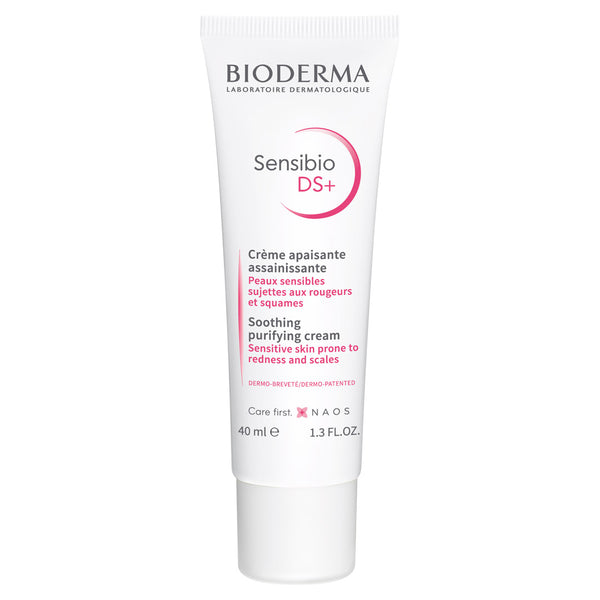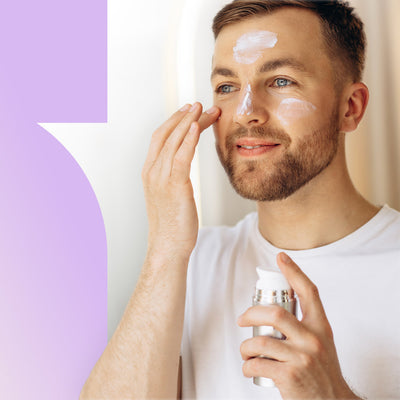The Truth About Psoriasis: Symptoms, Triggers and Support That Actually Helps

Psoriasis affects millions of people around the world, and for some, flare-ups can be intense and uncomfortable. There is a lot of information out there about where psoriasis comes from, but there is often a lack of simple, effective advice that genuinely helps.
In this blog, we break down the root cause of psoriasis, the potential triggers for those who suffer and how you can calm flare ups.
What Is The Cause Of Psoriasis?
Psoriasis is an autoimmune condition that, in most cases, is long-term. The main cause of psoriasis is that your T cells, a type of white blood cell, attacks skin cells. When this happens, your immune system tries to protect you, and this is when flare-ups and inflammation happen because the skin cells grow too fast. For people without psoriasis new skin cells usually travel from deep within the skin, all the way to the surface over the course of a month but for those with psoriasis this process only takes between 3 to 7 days.
The cause of psoriasis can be either genetic or environmental conditions, but it has also been known to be triggered by certain events such as a skin injury, throat infection or use of certain medicines.

Triggers and Symptoms Of Psoriasis
There are a few common signs to look out for if you feel you may be developing psoriasis, which are:
- Changes to nails: You may notice tiny holes appear in your fingernails and toenails, known as pitting. Nails can also become thickened, discoloured or loosened from the nailbed.
- Joint pain: You could start to experience swelling and painful stiffness in your joints, which is known as psoriatic arthritis. This is commonly experienced in the hands, feet, knees and ankles.
- Certain foods like red meat and vegetables like tomatoes and eggplants have been known to trigger psoriasis flare-ups.
- Hormonal changes, especially low oestrogen levels, can worsen symptoms.
Psoriasis can be challenging and, in some cases, can affect the quality of your life. It’s important to have the tools and advice you need to manage it efficiently. By being proactive about your health, you can ease your symptoms slightly by:
- Avoiding triggering foods like red meat, dairy, and refined carbohydrates.
- Reducing your alcohol intake.
- Manage your stress levels.
- Spend time outdoors as sunlight helpful for easing psoriasis but be sure to protect your skin with an SPF.
We can also offer personalised support and advice through our virtual video consultations. Simply book to speak with one of our skin experts for further advice to support your skin journey. Keep reading for our top 3 our psoriasis treatment recommendations.
Psoriasis Treatments
La Roche-Posay LIPIKAR Lait Urea 5+
The La Roche-Posay LIPIKAR Lait Urea 5+ is a nourishing daily moisturiser formulated for dry, rough & sensitive skin. Recommended by dermatologists, this is the perfect moisturiser for keeping your psoriasis flares calm. This cream uses urea as its key ingredient to gently exfoliate surface skin cells and minimise flaky skin.

iS Clinical Body Complex
Improve skins texture and soothe psoriasis with the iS Clinical Body Complex. For an everyday wash that won’t irritate the skin, this body cleanser won’t irritate skin. It forms an antioxidant protective barrier and provides hydration to even the most compromised skin.

Bioderma Sensibio Seborrheic Dermatitis Face Cream
The Bioderma Sensibio Seborrheic Dermatitis Face Cream also doubles as a psoriasis cream, as it works to reduce redness and scales. It is non-greasy, non-comedogenic and non-fragranced, so it will balance the skin without putting extra stress on it.

Shop Psoriasis Management Products
Found this blog useful? Head to our psoriasis page for more helpful products and recommendations for managing the skin condition.





















